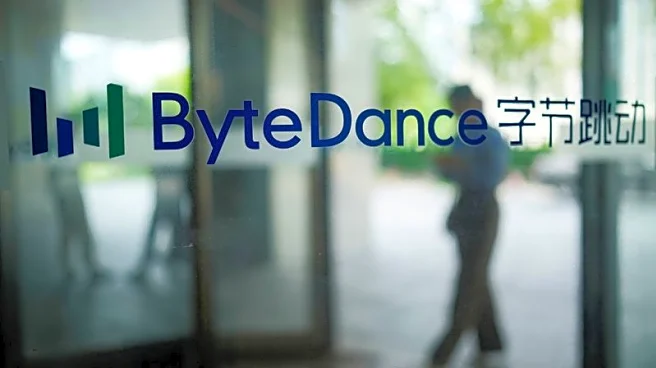By Fanny Potkin and Liam Mo
SINGAPORE/BEIJING (Reuters) -Chip design workers at Chinese tech giant ByteDance, many based in Beijing or Shanghai, unexpectedly found out last week that they are part of a Singapore
unit, three people familiar with the matter said.
The employees made the discovery when they were moved into a new group on the company's internal messaging platform, two of the people said.
Having chip design staff report into a Singapore unit may help ByteDance navigate U.S.-China tensions as it seeks to access advanced semiconductor technology.
Since late 2023, U.S. regulations have prevented companies based in mainland China from using Taiwan's TSMC, the world's biggest contract chip manufacturer, to produce advanced AI chips above certain performance thresholds.
The sources, who spoke on condition of anonymity, did not disclose the name of the unit.
Reuters was not able to learn how many of ByteDance's chip design staff are part of this unit.
ByteDance, which is best known outside China as the owner of TikTok, did not respond to a request for comment.
ByteDance is one of many tech firms worldwide ramping up efforts to develop proprietary chips, known as application-specific integrated circuits (ASICs), in a bid to reduce reliance on suppliers such as Nvidia.
It does not currently outsource chip manufacturing to TSMC, but sources said last year that it was working with U.S. chip designer Broadcom on developing an advanced AI processor that would be made by the Taiwanese firm.
ByteDance has a Singapore-registered entity called Picoheart that the company incorporated in December 2023, according to business registration records. Picoheart attracted attention last year when it acquired a 9.5% stake in Chinese memory chip maker Innostar.
ByteDance also has large data centers in Singapore and TikTok's CEO, Shou Zi Chew, is based there.
ByteDance began hiring chip-related staff in earnest in 2022. It has, however, launched fewer chips than rivals such as Alibaba and Baidu.
Currently, chips released by ByteDance can only handle inference tasks, which are less computationally intensive than training workloads, two of the sources said.
ByteDance's chip development portfolio includes video decoding and networking chips, and it has a dedicated team focusing on artificial intelligence applications, they added.
Recent job postings by the company show six positions seeking chip-related talent, including one for its AI chip team.
(Reporting by Fanny Potkin in Singapore and Liam Mo in Beijing; Editing by Brenda Goh and Edwina Gibbs)










